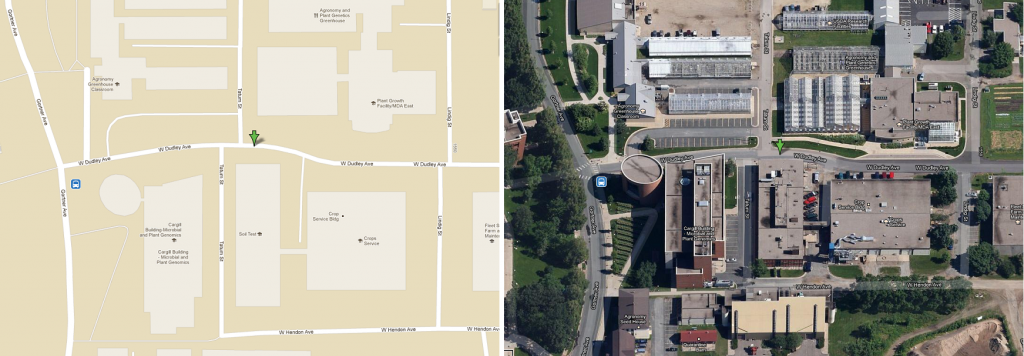What does the Soil Testing Laboratory do?
We provide routine soil testing and fertilizer recommendations for the purpose of evaluating soil fertility and soil pH level and/or problems due to excessive salts or fertilizer materials
What the Soil Testing Laboratory does NOT do?
There are a few things that we do not do.
- We do not go out to your land and collect samples for you.
- We do not provide soil testing for construction-related activities (such as a geotechnical investigations).
- We do not analyze soil for pesticides, herbicides, fertilizers, pollution contamination.
- STRAL is NOT accredited by the Minnesota Department of Health (MDH) to analyze well water.
Will a soil test help diagnose problems with my plants?
Problems with plants may be caused by factors other than soil fertility, e.g. disease, insects, insufficient light, soil moisture or compaction, or climatic conditions. An evaluation of soil fertility and pH is an important first step in diagnosing problems. If soil fertility is not found to be a problem, then the other factors affecting plant growth should be evaluated to determine possible causes.
How will my report be sent to me?
The soil test report will be emailed to you if an email address was provided when you submitted your sample. The report is sent from [email protected]. You may need to search your spam/junk folders. The report will be sent via USPS mail if no email address is provided.
Where can I go for more help?
Check out our Resources page for a complete list of county and state organizations who can offer further help.
How long does it take for the Laboratory to analyze my samples?
It usually takes seven to ten business days for the Laboratory to process your soil samples. However, this timeframe may increase during the spring and autumn rushes.
Do you test homeowner soils for nitrogen?
Soils for home lawn, garden, trees and shrubs are not tested for nitrogen because this nutrient is very mobile in soils. The nitrogen recommendation is based on plant type requirements and the relative organic matter level in the soil as determined by the Laboratory.
Should I test for trace elements or lead?
Trace element tests may be useful in some professional operations for special problems. Testing for lead is only useful if the soil is suspected to be contaminated with lead.
When should I request the soluble salts test?
The soluble salts test is only necessary under specific conditions. See soluble salts for more info.
How do I print a report that I received via email?
You must change your print settings to print in landscape (not portrait).
